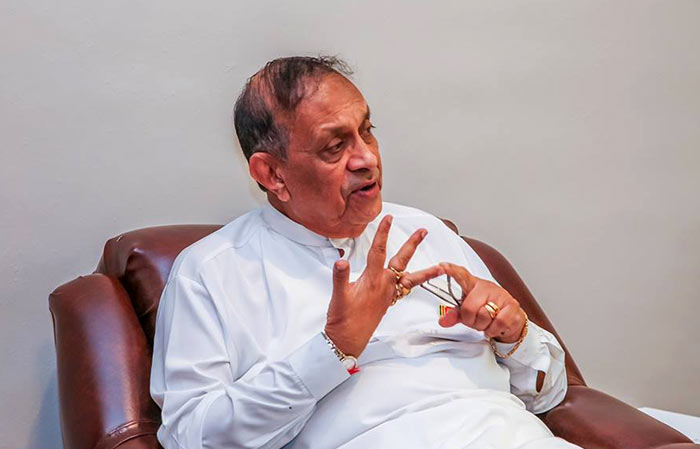Investigating Easter Sunday attacks only Parliament can stop PSC – Speaker

Investigations currently being conducted by the Parliamentary Select Committee (PSC), to inquire into the Easter Sunday attacks, which took place on 21 April, could only be brought to a halt by Parliament itself and not by the Speaker.
The Speaker’s Office, issuing a statement in this connection yesterday, said this is in the context that the President had told Cabinet on Friday (7) that he had directed that a letter from the Attorney General be forwarded to him by the Presidential Secretariat, requesting that it be tabled in Parliament.
The contents of that letter had said that some of the proceedings of the PSC, if made public, would hinder ongoing investigations, the Speaker’s Office further said. This is in the context that the PSC sittings are opened to the media.
The Speaker, in his statement, however said that Parliament has allowed the PSC sittings to be opened to the media, a feature which is not uncommon in the free world. Further, those giving evidence before the PSC have been advised that if giving sensitive evidence, to give such evidence in camera, bereft of media coverage.
The Speaker also said that upon receipt of this letter from the Presidential Secretariat, he had immediately forwarded its contents to the PSC, directing them that such open hearings should not be prejudicial to national security. He had further advised the PSC at a meeting, emphasising the importance of protecting national security when conducting their proceedings.
The Speaker however said that the President’s request, of tabling his letter in Parliament doesn’t arise. “It would be tabled only if its contents are appropriate to be tabled in Parliament. A request by the President, concerning the ongoing workings of the PSC in question, to be tabled in Parliament, is not in order,” the Speaker said.
He further said that it’s up to the PSC to decide whether their sittings should be open to the media or not. However, in this connection, the Speaker proposes to convene a meeting of party leaders and through them, address the concerns of the President to Parliament, particularly as to whether the PSC sessions should be opened to the media or not.
The Speaker further said that according to the law of the land, if a person, summoned before the PSC to give evidence, but doesn’t comply with such a request, that person is guilty of committing an offence.
The Speaker also said that the origins of this PSC was that in the immediate aftermath of Easter Sunday attacks, it was appointed to inquire into this tragedy, with the consent of both Government and Opposition MPs.
The original composition of the PSC was to have had been seven Government MPs and five Opposition MPs. Nonetheless, subsequently, UPFA MPs, which comprised the main Opposition in Parliament, and whose names were forwarded to be part of the PSC, boycotted serving in the PSC.
If, however, those UPFA MPs so selected, hadn’t boycotted being members of the PSC, the concerns highlighted by the President could have been solved within the PSC itself, the Speaker said.
Consequent to ‘Bloody Easter Sunday’, MPs together with religious leaders of the country, have arrived at a consensus concerning the deleterious effects of subjects such as polygamy; child marriages; attempts to subvert the common law of the country; the spread of extremism in schools; dress code in public, particularly of attempts to cover one’s face and hate speech, conducted in the name of religion, the Speaker, in his statement, further said.
(Source: Ceylon Today – By Paneetha Ameresekere)
Latest Headlines in Sri Lanka
- Court orders arrest of Shamindra Rajapaksa in SriLankan Airlines Airbus bribery case February 2, 2026
- Chaminda Kularatne files corruption complaint against speaker February 2, 2026
- Chinthaka Hewapathirana elected new Chairman of Weligama Pradeshiya Sabha February 2, 2026
- Sri Lanka to protect and develop 3.1 Billion-ton quartz reserve in Monaragala February 2, 2026
- Police Inspector, Constable arrested over missing gun at Matugama Police Station February 2, 2026


